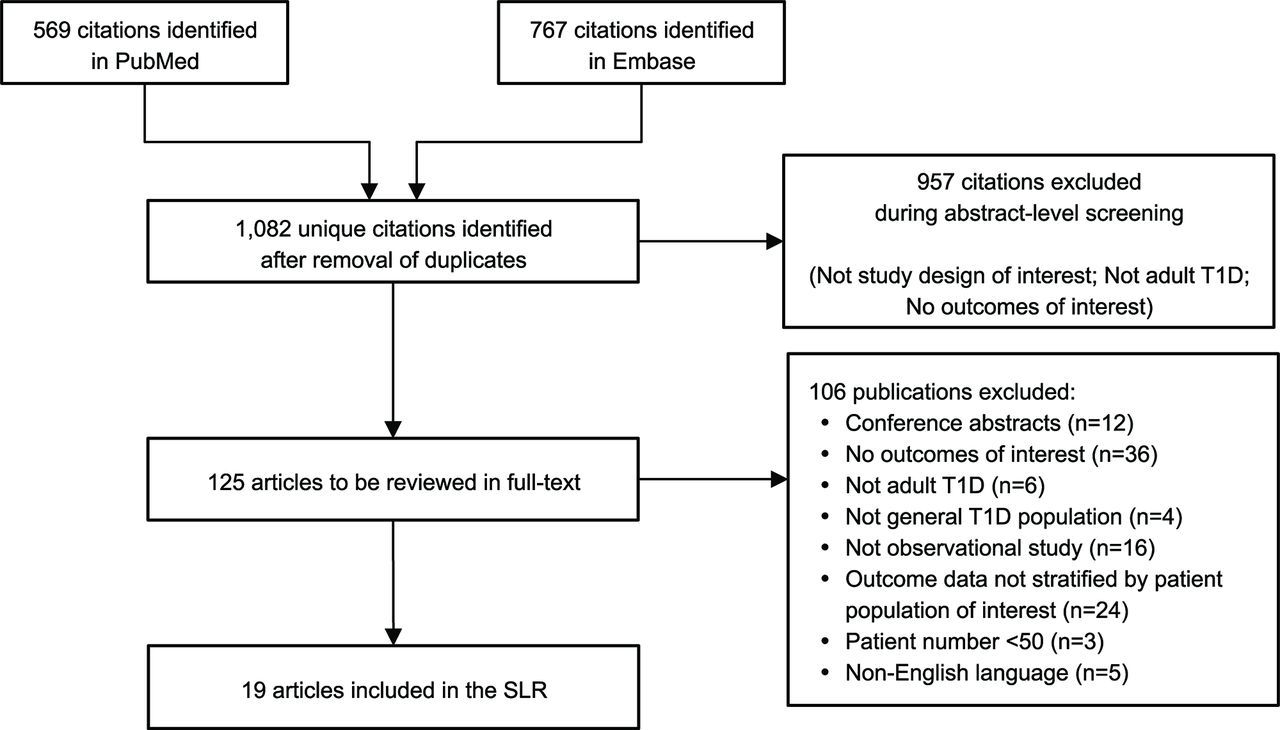05Jan2018
Glycosylated haemoglobin
by admin, 0 Comments

Glycosylated haemoglobin is markedly elevated in new and known diabetes patients with hyperglycaemic ketoacidosis
CO Ekpebegh, B Longo-Mbenza, E Blanco-Blanco
Abstract
Background: Glycosylated haemoglobin (HbA1c) and random blood glucose are markers of chronic and acute hyperglycaemia respectively.
Objective: We compared HbA1c levels in ketoacidosis (DKA) occurring in known and newly diagnosed diabetes.
Methods: Retrospective review of medical records for 83 DKA admissions in 2008 and 2009 with results for HbA1c at presentation
Results: There were 52 and 31 DKA admissions in known and newly diagnosed diabetes patients respectively. Fifty of the 83 DKA admissions were in females. The mean age (per admissions) and HbA1c of all admissions are 43.4 ± 20.3 years (n=83) and 12.7 ± 3.4 % (n=83) respectively. Mean HbA1c in known Type 1, known Type 2 and newly diagnosed diabetes patients were similarly very high: 12.4 ± 3.3 %, 12.5 ± 3.3 %, 13.1 ± 3.7 %; P = 0.6828. The HbA1c levels in newly diagnosed diabetes patients less than 30 years (likely Type 1 diabetes) and ≥ 30 years (likely Type 2 diabetes) were similar. There was a tendency to significantly positive correlation between blood glucose and HbA1c in new diabetes patients.
Conclusions: In our setting, DKA is associated with markedly elevated HbA1c levels in known type 1, known type 2 and new onset diabetes.
Key words: Glycosylated haemoglobin, ketoacidosis, Known and newly diagnosed diabetes
Recent Posts
- Editor’s choice: Tackling infectious diseases, NCDs and sexual reproductivehealth issues as we enter our 24th year of remarkable growth
- Preconception and contraceptive care for women living with HIV/AIDSattending antiretroviral treatment clinics in Lagos State, Nigeria
- Effects of SNPs on TNF-α and IL-10 cytokine expression in TB and HIVpatients in the Capricorn district, Limpopo Province, South Africa
- Prevalence of Schistosomiasis in a neglected community, South western Nigeria at two points in time, spaced three years apart
- Review of Leishmaniasis in the Middle East and North Africa
Recent Comments
Categories
- 2001 Issues
- 2002 Issues
- 2003 Issues
- 2004 Issues
- 2005 Issues
- 2006 Issues
- 2007 Issues
- 2008 Issues
- 2009 Issues
- 2010 Issues
- 2011 Issues
- 2012 Issues
- 2013 Issues
- 2014 Issues
- 2015 Issues
- 2016 Issues
- 2017 Issues
- 2018 Issues
- 2019 Issues
- 2024 Issues
- Articles
- December issue
- December Release
- June Issue
- June Release
- March Issue
- March Issue
- March Release
- News
- number / volume 2
- number /volume 1
- number /volume 1
- number /volume 1 2008
- number 1
- number 1
- number 1
- number 1
- number 1
- number 1
- number 1
- number 2
- number 2
- number 2
- number 2
- number 2
- number 2
- number 2
- number 2 special Issue
- number 2 special Issue 2
- number 3
- number 3
- number 3
- number 3
- number 3
- number 3
- number 3
- number 4
- number 4
- number 4
- number 4
- number 4
- number 4
- number/ volume 3 2008
- number/ volume 4 2008
- number/volume 1
- number/volume 1
- number/volume 2
- number/volume 2
- number/volume 2 2008
- number/volume 3
- number/volume 3
- number/volume 3
- number/volume 4
- number/volume1
- September Issue
- September Release
- Special Edition
- special Issue
- Uncategorized
- Vol. 24 No. 1 (2024)
- volume 1
- volume 1
- volume 1
- volume 2
- volume 2
- volume 2
- volume 2
- volume 2
- volume 3
- volume 3
- volume 3
- volume 3
- volume 4
- volume 4
- volume 4
- volume 4
- volume1
Categories
- 2001 Issues
- 2002 Issues
- 2003 Issues
- 2004 Issues
- 2005 Issues
- 2006 Issues
- 2007 Issues
- 2008 Issues
- 2009 Issues
- 2010 Issues
- 2011 Issues
- 2012 Issues
- 2013 Issues
- 2014 Issues
- 2015 Issues
- 2016 Issues
- 2017 Issues
- 2018 Issues
- 2019 Issues
- 2024 Issues
- Articles
- December issue
- December Release
- June Issue
- June Release
- March Issue
- March Issue
- March Release
- News
- number / volume 2
- number /volume 1
- number /volume 1
- number /volume 1 2008
- number 1
- number 1
- number 1
- number 1
- number 1
- number 1
- number 1
- number 2
- number 2
- number 2
- number 2
- number 2
- number 2
- number 2
- number 2 special Issue
- number 2 special Issue 2
- number 3
- number 3
- number 3
- number 3
- number 3
- number 3
- number 3
- number 4
- number 4
- number 4
- number 4
- number 4
- number 4
- number/ volume 3 2008
- number/ volume 4 2008
- number/volume 1
- number/volume 1
- number/volume 2
- number/volume 2
- number/volume 2 2008
- number/volume 3
- number/volume 3
- number/volume 3
- number/volume 4
- number/volume1
- September Issue
- September Release
- Special Edition
- special Issue
- Uncategorized
- Vol. 24 No. 1 (2024)
- volume 1
- volume 1
- volume 1
- volume 2
- volume 2
- volume 2
- volume 2
- volume 2
- volume 3
- volume 3
- volume 3
- volume 3
- volume 4
- volume 4
- volume 4
- volume 4
- volume1
